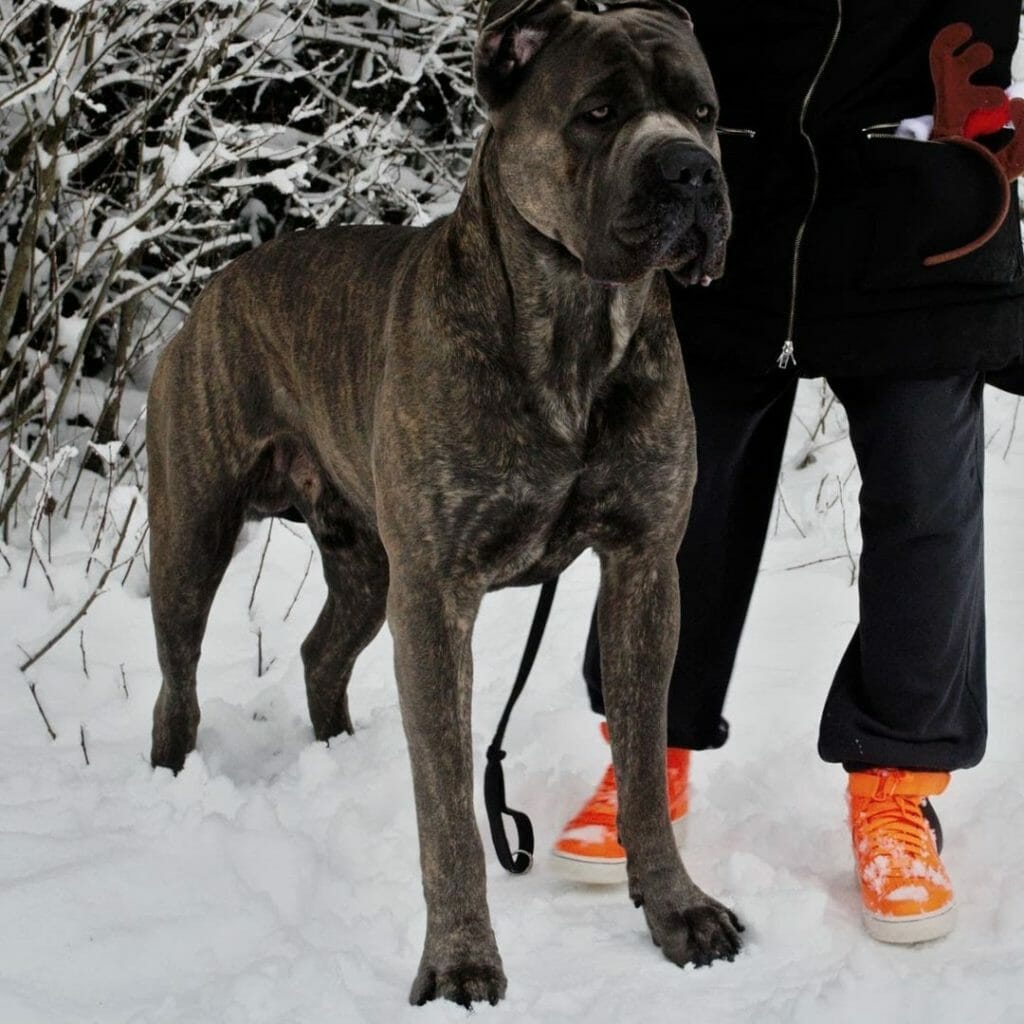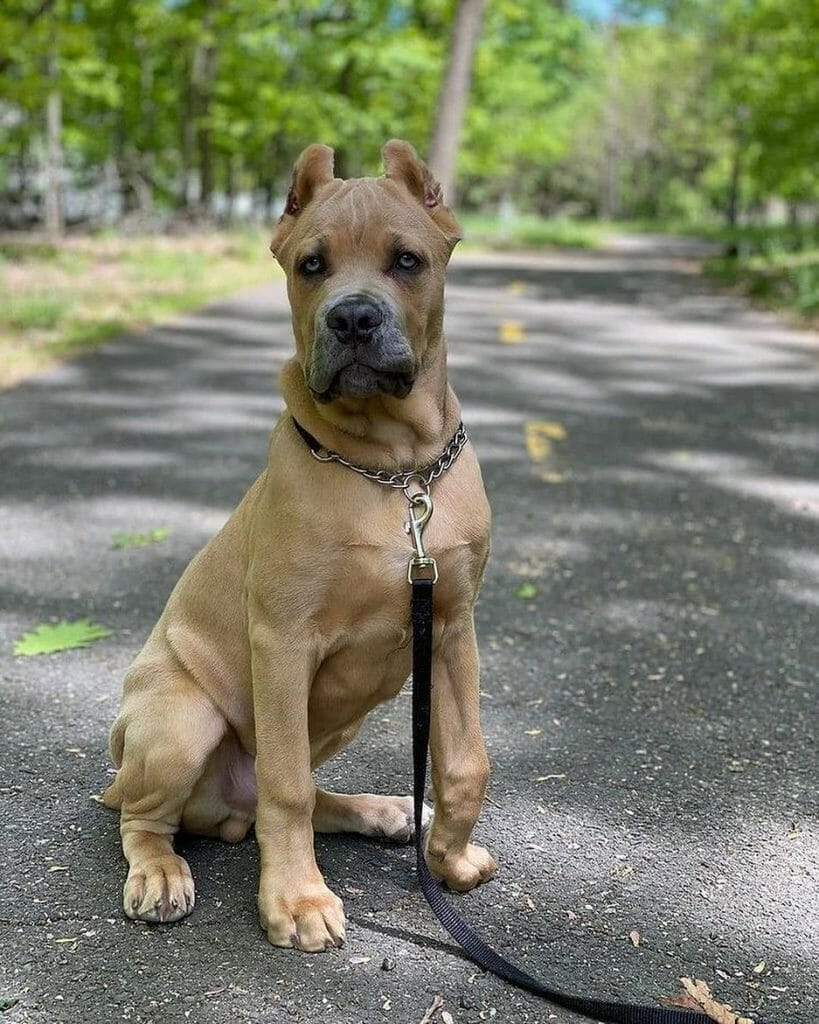When Do Cane Corsos Become Protective? Find That Out Here!
The moment a Cane Corso puppy is born, his strong connection with his history will gradually reveal to him one special purpose that only a few dogs can fulfill and that is to be an unbeatable guard dog. It will take about a year or 14 to 18 months before the Cane Corso starts manifesting his protective instinct and owners surely will notice a change in their pet’s behavioral patterns.


Having a guard dog entails many responsibilities and even if a Cane Corso is born to protect families and properties, guiding him into becoming an effective and safe protection dog is always the first item on the list. Let us tackle more into this Italian Mastiff’s nature to safeguard and find out what methods you can employ so he grows up to be an asset in your home.
Table of Contents
Why Are Cane Corsos Naturally Protective?
Throughout the Cane Corso’s early history, being a guard dog, a hunter, and a war dog are just some of the tasks given to him and he accomplished all excellently. He was bred in various places for the said purposes as they take advantage of his massive size, threatening appearance, and dependability. His name is even derived from the Italian word “cane” which means dog and from the Latin term “cohors” which roughly translates to protector or guardian.


In other words, the Cane Corso is strongly rooted in his past. The cycle of being bred to do and fulfill roles such as being an estate guardian molded his behavior which includes being protective and alert at all times. There is what we call genetic temperament. This means that dogs can pass on to their offspring prominent personality traits for about 20% to 60% according to scientists. This somehow explains why modern-day Cane Corsos continue to develop their instinct to protect.
Are There Any Chances of a Cane Corso Turning On Its Owner?
It is at the slightest chance that a well-raised Cane Corso will one day turn on its owner. This is a Mastiff-type dog that puts into priority his master’s happiness over his, therefore, his ideal personality consists of being loyal, obedient, and reliable. We can describe him as a massive people-pleaser.
However, each dog is built differently. A Cane Corso can have either a heightened sense of confidence or low self-esteem, and if he gets rehomed and abused, a fight or flight response may be exhibited. When this happens, anyone including its owners can be attacked not because the dog wants to but because it is simply an automatic response after feeling scared or menaced.
It is also probable that a Cane Corso who is programmed to obey his masters won’t ever cause a negative response. In fact, a very abused dog would be incapable of holding grudges. This breed can be incredibly loyal to his “pack leader” even if he’s afraid of him.
Are Cane Corsos Dangerous to Other People?
Only a Cane Corso who has little to no socialization is considered a threat and danger to people around him. No one should underestimate this dog. With his size alone, he can easily maul or pin somebody to the ground. A Cane Corso who lacks socialization skills is not fit to become a guard dog. A trained one must know how to identify which is normal behavior and which one is not.
Should you take your chances and place a Cane Corso outside your yard without thoroughly exposing him to other people and animals, the worst thing you might end up witnessing is him attacking an innocent passerby.
The Qualities of a Natural Guard Dog


Ever noticed why some breeds are not just right to serve as guard dogs? Ignoring the size, a few pooches and canines lack the territorial and protective instinct a good protection dog must always possess. To further understand why Cane Corsos are highly suitable for this role, here are some of the prominent qualities that make him stand out among the rest:
- A Cane Corso has the initiative and motivation to responsibly do his guarding duties. Paired with his high intelligence level, he keeps himself from leaving his post just to attack an individual who poses no threat to him.
- A Cane Corso is focused on his objective and cannot be bribed or distracted easily no matter what type of environment he’s in. He must always be alert, observant, and quick to respond appropriately in situations.
- A Cane Corso is smart enough to assess circumstances and see whether taking risks is worth it or not. He must be able to make sound judgment calls through the lessons he learned from his previous experiences.
- His protection levels shouldn’t be in the extremes. Watching over the kids is a common behavior, but if a stranger approaches, he would unhesitantly attack after witnessing movements he considers as alarming.
Do Cane Corsos Need to Be Trained?
Yes, they do. Their nature needs nurturing to guide them on how to properly do their future tasks as pet companions. As they say, an untrained guard dog knows that he needs to protect his family and home, but he’ll fail to do it correctly. Getting immersed in regular training and drills will instill in him vital techniques he can employ should the need arise. Intruders and burglars won’t have a chance to break in if a dog has the confidence that he can secure everyone’s safety with his presence and abilities.
Top 7 Guard Training Methods For Your Cane Corso
Train your Cane Corso pup at a young age since this is when you won’t witness much of his stubbornness yet. Of course, some guard training sessions need to complement his age, but you can start by playing with him and letting him discover his natural traits. Aside from this, we have seven top methods you can gradually incorporate once he reaches his first year as a dog!
- Verbal Commands. Let the Corso learn words like “attack” and “let go”. They will come in handy if he advances on a certain individual. Hand signs are just as effective, but make sure you properly reinforce your dog on this so he won’t forget what certain signs mean.
- Basic Obedience. Obedience is one important trait for every guard dog. At one command, a Corso must immediately follow what his master tells him to do like bark if a dangerous person approaches.
- Impulse Control. Train your Corso not to take everyone as a threat. Welcomed guests would feel at ease if your dog is relaxed and friendly.
- Territory Familiarization. Introduce the areas your Corso must protect. For example, the fence around your home should be taken as a boundary that divides the street from his territory. Always do reruns until he learns what he’s supposed to protect.
- Testing Distractions. Intruders can give treats to dogs to keep them from alerting their owners or make them leave their guarding posts through noise distractions. In the Cane Corso’s case, he should never let people bribe him.
